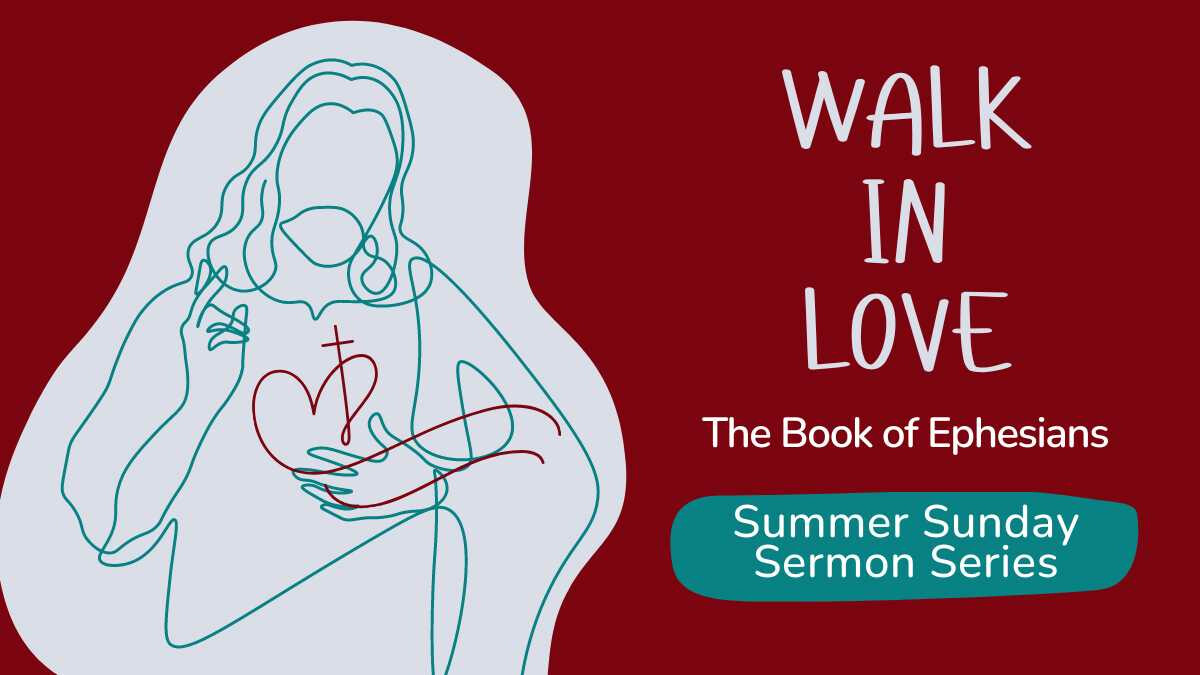
Day 1
“Paul, an apostle of Christ Jesus by the will of God, to the saints who are at Ephesus and who are faithful in Christ Jesus: Grace to you and peace from God our Father and the Lord Jesus Christ.” Ephesians 1:1-2
Grace and Peace
With this very brief introduction, contained in these first two verses of Ephesians, we launch into one of the richest texts every written. The book of Ephesians provides us with an incredible glimpse into the nature of God, His Triune work in our salvation, the essence of God’s love and grace, our moral guidelines, our ethical standard of behavior toward one another, and the core aspects of our daily battle against our spiritual adversary. The book itself is one of the easiest to outline in the Bible. Three chapters of theology and three chapters of practical living. The three chapters on theology provide the underpinnings for the three chapters on how we should live.
The first word of the book is the most common first word in all of the books of the New Testament, “Paul.” Thirteen books of the New Testament begin with his name. This pattern of listing the author of the letter as the opening word was common practice Paul’s day. The thirteen books he authored would naturally begin in this manner. However, though simply custom, his name invokes much in the way of biblical history. Paul, by the time of the writing of Ephesians, would have been an elder statesman in the early church. Widely recognized as one of the core defenders of the Christian faith, he chartered the course of the theology and mission of those first few decades after the resurrection of Jesus Christ. He beginnings with Christianity were legendary. Saul, the more Jewish derivation of his name, sprung on the scene in the biblical narrative as a persecutor of Christianity. He provided authoritative permission for the mob’s stoning of Stephen, the first martyr of the church. From there, Saul began actively pursuing the arrest and mistreatment of other “followers of the way,” the title the church initially embraced. As quickly as he arrived on the scene as a persecutor of the church, his trajectory shifted completely in the opposite direction. Jesus Christ Himself confronted Saul. The dramatic change in Saul after this personal encounter confounded the Jewish authorities he once represented. Overnight, Saul became the greatest defender of the Christian faith.
As the New Testament narrative unfolds we can see the depth of this young, religious zealot’s Jewish commitment. It is likely that few personas from history were as committed to their religious background as this Pharisee turned Christian Apostle. Saul, as his missional worked began to take him into the Greco-Roman world, changed his name to the more Greek sounding Paul. Three missionary journeys and several books later, Paul now found himself on the defendant side of a criminal case. In essence, the case afforded the locus for a much bigger trial, Rome versus the Christian faith. Paul crafted the book of Ephesians while waiting to defend his faith before Caesar. The churches all over Palestine, Asia Minor, Greece, and beyond, knew of Paul’s plight along with the potential aftermath of a tyrannical Roman response against the growing Christian faith. Many in the church had developed a theology of suffering. Paul taught it. More than that, Paul lived it. “Therefore I ask you not to lose heart at my tribulations on your behalf, for they are your glory.” (Ephesians 3:13) The opening word of this book, the name of the author, invoked all of that history. Paul was well-known by his recipients. Much of the Christian world heard of his transformed life, ministry, and imprisonment. They were keenly aware of his theological affirmation that Jews and Gentiles alike come to God through faith in Jesus Christ, apart from following the Law of Moses. To a great extent, his theology concerning the unity of Jews and Gentiles in Christ, led to his arrest and incarceration while crafting this letter. Yet, Paul did not view his situation as happenstance or bad luck but all under the sovereign will of God. The same God that called this persecutor of the church to be a follower of Christ also placed him in the position of authority over the church as an apostle. Even in prison, Paul viewed his plight as directed by the hand of a sovereign God, not the work of a totalitarian Roman government. The word apostle means “one who has been sent out for a purpose.” That purpose was not thwarted because of his imprisonment. Paul was selected by God for the specific purpose of taking the good news about Jesus Christ to the Gentile world. He provided the Ephesian church more details on this apostolic mission in the third chapter of the letter.
“To the saints” delivered a particular mark of distinction to the recipients of the letter. The word comes from the root word for “holy,” meaning “to be set apart” or “to be distinct.” All believers in Christ are saints. Despite some aspects of sainthood throughout church history, where the church proclaimed certain faithful leaders to be “saints,” the biblical record declares that sainthood is not a small subset of the broader category of believers. All believers are “set apart” and “distinct” because of our identity in Jesus Christ. He has made the believer holy. He has set us apart and made us distinctive for the purposes of God. All the believers in Ephesus and all believers since are saints. Beyond the distinctive nature of these believers by virtue of their faith, Paul also described them as those “who are faithful.” Paul knew this church well. He had spent over a year there and remained in constant communication with them and the churches in their area. He knew of their struggles but also their faithfulness. Not only were they holy by virtue of their faith in Christ, but they were living out that distinctive life by virtue of their faithfulness to Christ.
Paul issued his normal greeting to the church, “grace and peace to you.” Imagine the juxtaposition of being chained to a Roman soldier while awaiting a capital punishment trial but greeting the church with a pronouncement of “grace and peace.” This is the transcendent work of God. It is a grace and peace in the person and character of God flowing to us out of our relationship with Him. It is from God our Father. Grace and peace comes from God our Father and our Lord, Jesus Christ. Jesus Christ has brought about His Father’s perfect plan of salvation for all who believer. Paul was in prison. The church was under daily stress and even persecution. However, God was greater than all of that. His love, His plan, His presence, His calling, and His people, are all greater than any Roman prison or even death itself. In the midst of our most difficult circumstances, all believers in Christ live under God’s “grace and peace.”
Suggested Prayer: God, You have called us by Your name. Your name is holy. Because You are holy, You have set us apart and made us holy, distinct from the world all around us. May Your grace and Your peace comfort our hearts and calm our minds. We confess that You alone are our hope and salvation. You are our ever present help.




Login To Leave Comment